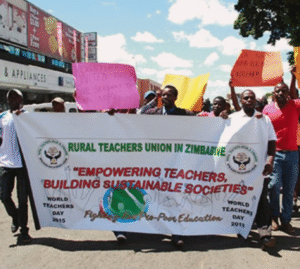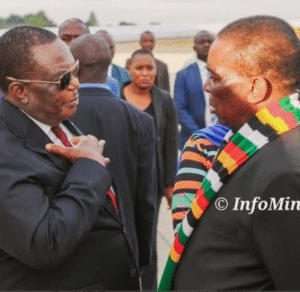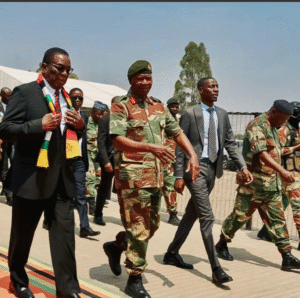SHOCKING TURN OF EVENTS: CCC INVASION OF RURAL CONSTITUENCIES RATTLES ZANU PF’S ONCE UNASSAILABLE STRONGHOLD
In a dramatic twist of political fate, the invasion of rural constituencies by the CCC (Citizens for Change Coalition) has left ZANU PF (Zimbabwe African National Union – Patriotic Front) dumbfounded. Historically considered an impenetrable bastion of support for the ruling party, the recent surge in opposition activity has sent shockwaves through the ZANU PF camp. The shift in dynamics has prompted the ruling party to resort to desperate measures, even using the police to disperse CCC rallies with tear gas. This unexpected turn of events has put the country’s political landscape on edge.

For decades, ZANU PF’s strength primarily relied on the unwavering loyalty of rural voters. The party, led by former President Robert Mugabe, successfully cultivated a connection with these communities, painting itself as the vanguard of the liberation struggle and the protector of Zimbabwean identity. As a result, rural areas remained a seemingly impenetrable stronghold, providing the party with consistent electoral victories over the years.
However, recent times have witnessed a remarkable shift in political allegiance, with the CCC making significant inroads into these traditionally pro-ZANU PF territories. The CCC, a coalition of opposition parties and civil society groups, has been gaining momentum by rallying behind a message of change, social justice, and economic reform. Their inclusive approach and promises of a brighter future have resonated with rural voters disillusioned with the status quo.
The shocking swing in rural constituencies towards the CCC has sent alarm bells ringing within ZANU PF. Party leaders, once confident in their rural support base, now find themselves scrambling to reclaim their erstwhile loyal voters. This has led to a series of frantic campaign rallies and increasingly aggressive tactics aimed at countering the CCC’s influence.
One such measure that has drawn widespread criticism is the use of tear gas by the police during CCC rallies. Rather than addressing the concerns and aspirations of the rural populace, this heavy-handed response has only intensified resentment against the ruling party. CCC leaders have been quick to capitalize on the situation, accusing ZANU PF of trying to stifle democratic expression and maintain its grip on power through fear and intimidation.
Zimbabwean citizens, both in rural and urban areas, are keenly observing the developments, and the country finds itself at a critical juncture. The once seemingly unassailable ZANU PF dominance is being seriously challenged, and the prospect of a competitive multi-party democracy is becoming increasingly tangible.
To make matters more complex, the youth vote, once reliably pro-ZANU PF, is now showing signs of fragmentation. A younger generation, frustrated by economic stagnation and limited opportunities, is gravitating towards the CCC, whose message of change has struck a chord with their aspirations for a more prosperous Zimbabwe.
As the nation heads towards the next general elections, the political climate has become charged with anticipation and uncertainty. The CCC’s invasion of rural constituencies has undoubtedly disrupted the status quo and opened up possibilities for a more diverse and competitive political landscape in Zimbabwe.
Only time will tell how ZANU PF responds to this unprecedented challenge. Will the ruling party adapt its approach and address the concerns of the people, or will it persist with repressive measures? Whatever the outcome, it is clear that Zimbabwe’s political landscape has evolved, and the days of an unchallenged ZANU PF stronghold seem to be a thing of the past. The fate of the nation now lies in the hands of the voters, and they hold the power to shape Zimbabwe’s future for generations to come.




